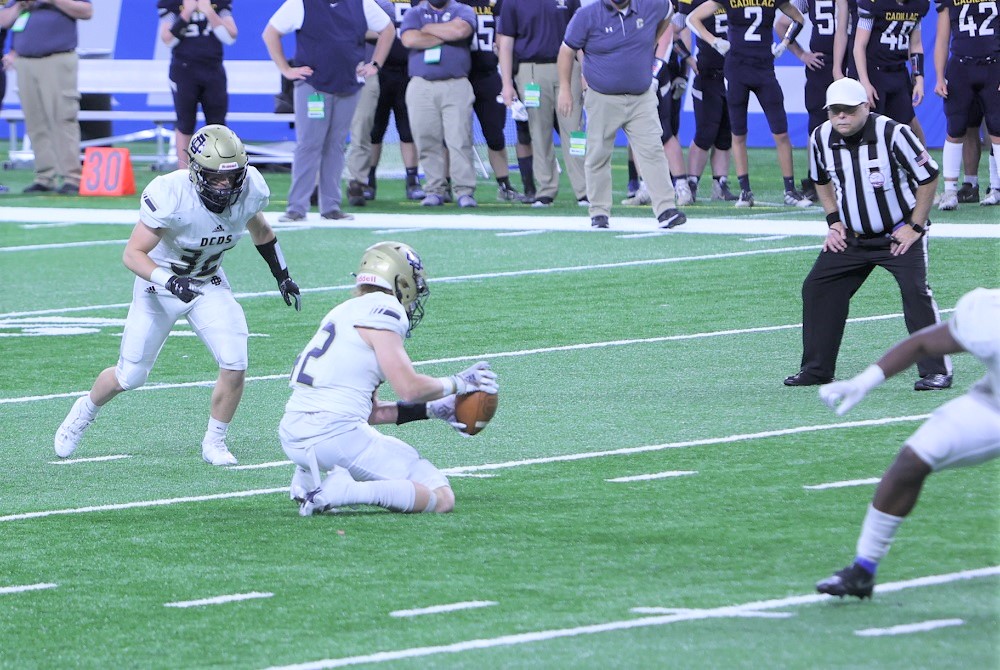
Be the Referee: What Officials Don't Do
October 11, 2018
This week, MHSAA officials coordinator Sam Davis discusses some of the things that do not fall under officials' many game-day responsibilities.
Be The Referee is a series of short messages designed to help educate people on the rules of different sports, to help them better understand the art of officiating, and to recruit officials.
Below is this week's segment – What Officials Don't Do - Listen
Game officials at all levels have a lot of responsibilities. But there are some critical things that take place at local high school games where officials don’t have the authority that some folks think they do.
Let’s start with injuries – specifically concussions. Concussion management starts and ends with the local school. If an official suspects a concussion – or any injury – all he or she can do is notify the coach of the team. The school makes the decision about whether or not a player stays in the game.
We often get calls about whether or not an official is responsible for enforcing MHSAA Handbook rules. Again, it’s up to the school, which agrees to follow and enforce the rules when joining the Association. Even if the official suspects an ineligible player is in the game, it’s not his or her role to enforce that rule. It’s all on the school.
Past editions
October 4: Always 1st-and-Goal - Listen
September 27: Unique Kickoff Option - Listen
September 20: Uncatchable Pass - Listen
September 13: Soccer Rules Change - Listen
September 6: You Make the Call: Face Guarding - Listen
August 30: 40-Second Play Clock - Listen
August 23: Football Rules Changes - Listen

Be the Referee: Field Goal Falls Short
By
Sam Davis
MHSAA Director of Officials
September 30, 2021
Be The Referee is a series of short messages designed to help educate people on the rules of different sports, to help them better understand the art of officiating, and to recruit officials.
Below is this week's segment – Field Goal Falls Short - Listen
Three things can happen if a field goal attempt crosses the line of scrimmage but comes up short of the goal line. Do you know all three?
First, the ball can go out of bounds. If that happens, the ball is dead and on the change of possession, the team newly on offense takes over where the ball went out of bounds.
Second, the kicking team can be the first to touch the ball. When that happens, this is the first touching and again the team newly on offense takes over where the ball was downed.
And third, the receiving team can return the kick. And they would take over on offense after the returner has been tackled or goes out of bounds.
Think of a field goal attempt as a punt, and you’ll always know what’s possible if the kick comes up short of the goal line.
Previous editions
Sept. 23: Volleyball Obstruction - Listen
Sept. 16: Catch or No Catch - Listen
Sept. 9: Intentional Grounding – Listen
Sept. 2: Pass Interference – Listen
Aug. 26: Protocols and Mechanics – Listen

